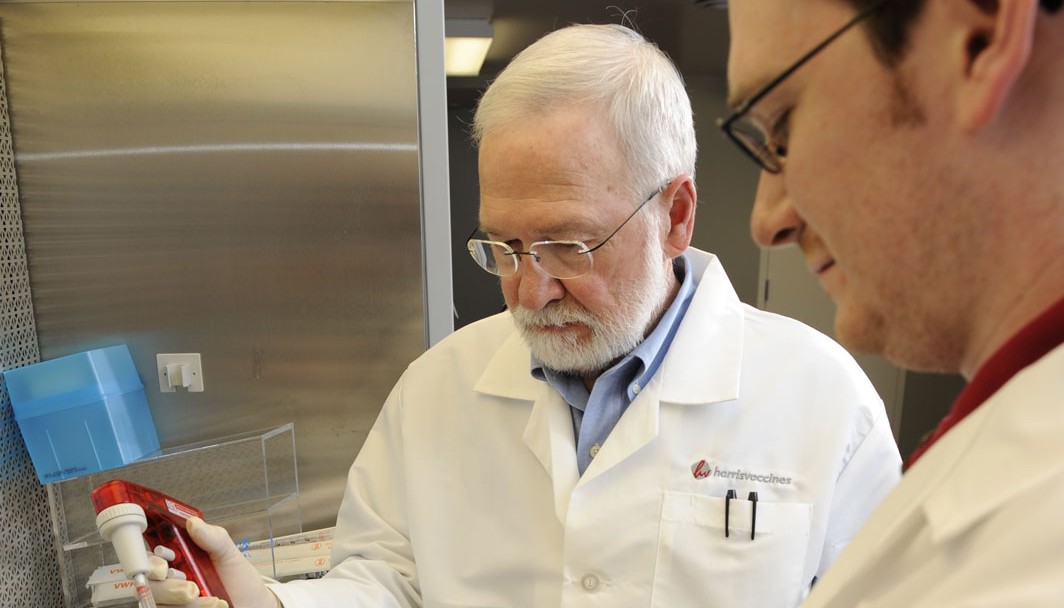
Science Sells
When you walk into Harrisvaccines Inc. you can feel the energy. The glass doors surrounding the reception area reveal offices with employees intently studying computer screens and deep in discussion.
Like any startup, this scene has taken time and energy to establish.
The business got its start in 2005 when Hank Harris, professor of animal science and veterinary diagnostic and production animal medicine at Iowa State University, and Matt Erdman, a doctoral student, discovered a vaccine to prevent Porcine Reproductive Respiratory Syndrome (PRRS).
The PRRS virus causes infertility and reproductive problems in pigs and can be economically devastating to producers. The two scientists decided to start the business in order to market, develop and distribute the vaccine. The company started out as Sirrah and changed its name to Harrisvaccines Inc. in 2008.
“In 2009, Harrisvaccines was the first company to market a vaccine for the novel H1N1 virus for swine,” Harris says. “Today the company is thriving and making progress in finding solutions to PRRS and other diseases.”
Since its start, the company has grown from one lab with two scientists to four labs with 20 employees. In February, the company received the Tibbetts Award from the U. S. Small Business Administration for advancing technological innovation and economic growth.
Harrisvaccines Inc. is just one of 60 tenants currently housed at the ISU Research Park south of the Iowa State University campus. Steve Carter, director of the ISU Research Park and the ISU Pappajohn Center for Entrepreneurship, says the nonprofit organization provides an environment that encourages scientists who want to make their research available to the public.
“Our primary purpose is economic development. We want to keep these ideas in Iowa and we are set up to encourage and support these new companies,” Carter says.
For the past 10 years Mike Upah has led the ISU Pappajohn Center for Entrepreneurship’s business development program. He says the program has helped more than 150 businesses like Harris’ during that time. Helping entrepreneurs understand Iowa State policies, licensing and product marketability are just a few of the services the center offers.
“Every situation is different,” Upah says. “It’s not the easiest thing in the world to take that basic bench research and create a successful business. We are not attorneys, but we can help them understand, in business terms, what needs to be addressed.”
Businesses in the research park range from startups to large international companies that include biotechnology, cyberinnovation, agriculture, health, wellness and more. Harris is an example of a successful scientist who is continually innovating and pursuing new ideas, Carter says.
“He has the energy and drive to take these ideas and put them into the world because he believes it will benefit society,” Carter says. “He could have published an article about the research and been done with it, but it was his desire to help others.



